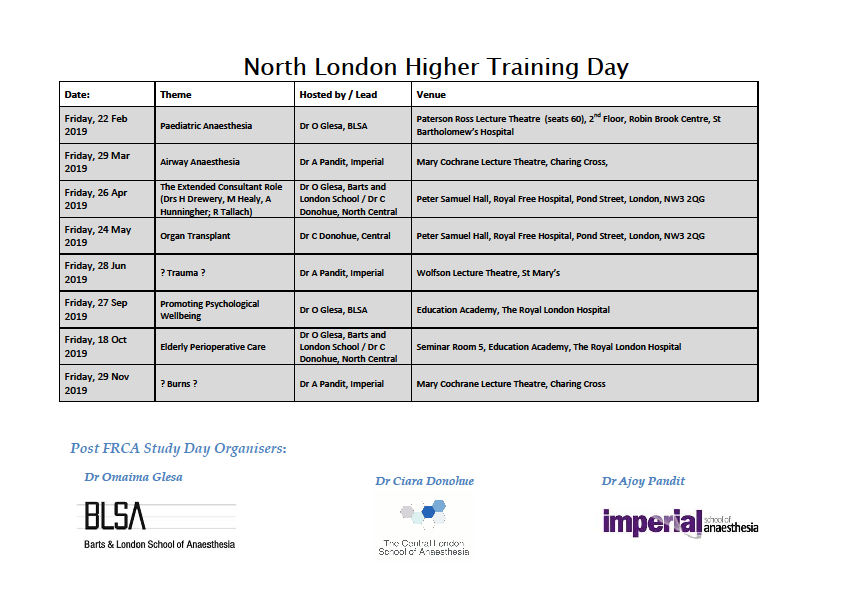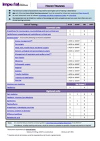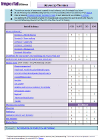Applications are invited for 2 posts starting May and November 2022 for the Head and Neck anaesthesia fellowship posts at NPH
Friday 4th June 2021
Announcing the Imperial Novice Course - February/March 2021 please contact info@imperialnovice.com for details
Freely available to all Imperial School of Anaesthesia Trainees
Consultant led course - intense viva preparation including exam technique
The Marsden have a slot open for their airway research fellowship from Aug 2021. They will be considering any applications that arrive by/on the 4th December and plan to interview on the 18th December. The application is through the Marsden website fellowship pages (and not NHS jobs).
Please apply now for Fellowship posts in 2021/2022
Register to attend this Online event
12 month post involving 50% education and 50% clinical work. Develop and deliver educational opportunities for anaesthetic trainees including simulation training. Funding available to undertake a PG Cert in Education.
2 six month posts starting Feb '21 and Feb '22
Higher training includes a year of general anaesthesia plus three month blocks of paediatric, cardiothoracic, neurosurgical anaesthesia and intensive care medicine. Trainees may also undertake fellowships and take time out of programme as part of a final year of advanced training in order to focus on a subspeciality or other area of interest. Additional training may also be undertaken by trainees accrediting in pain or intensive care medicine.
This page provides information on the specific requirements for core training. Please ensure you read and fully understand the requirements below and read the separate pages on the ePortfolio for help with completing workplace based assessments and units of training and the ARCP for the requirements for your annual appraisal.
It has been agreed that for simplicity, trainees can to progress to ST5, with or without either element of the Final exam (providing they have satisfactorily completed all intermediate level units of training), but that they must achieve both parts by ST5 ½.
This allows trainees to go straight into ST5 without remedial time. If the trainee does not achieve the exam in the first half of ST5, remedial time is given at that point, and the ‘clock stops’ on them achieving higher level competences. This fits with our guidance (https://www.rcoa.ac.uk/sites/default/files/TRG-TimingFRCAFinalExam.pdf ) which states,
‘If the Final FRCA examination is not passed before mid-way through ST5, approval of additional training time as per the Gold Guide is at the discretion of the ARCP panel on a case-by-case basis.’
The GMC system automatically sends these to alert you. It is a Deanery responsibility to action these after ARCPs (as appropriate). At present they have a peak in revalidation recommendations and are currently working through them. If you receive an email regarding your revalidation, please forward to anaesthetics@southlondon.hee.nhs.uk with a brief sentence requesting they update within deadline.
This unit of training is new for August 2016.
The higher trainees now have a WhatsApp group. To join please email the higher training rep Clare Conroy
HENWL together with HENCEL provides 10 higher training days per year. Imperial School of Anaesthesia requests you provide evidence of attending at least 5.
If you are LTFT a percentage of the 5 should reflect your working pattern, eg 60% LTFT = minimum of 3.
Evidence of attendance of other equally educational courses may be accepted in the place of training days at your ARCP, at the panels discretion.
You may be required to use your study leave by some trusts so please check your leave diaries and book early. Details on venues and content will be appear below, as well as on the courses/conferences page. Please be aware that the advertised topics may be subject to change.
Registration: Please register via Eventbrite, links below, usually open 30 days in advance.
• If you cannot attend, please ensure you cancel your Eventbrite booking, allowing others to take your place.
• Sign the register for both morning and afternoon; No signature = No attendance
• No feedback = No certificate
Feedback links will be provided on the Training Day and via usually via email also. Failure to complete Feedback denotes no cerificate of attendance issued.
2019 Higher Training Day (+Final FRCA) Calendar

Important Documents
Please use the ePortfolio CUT form, only use this paper version in exceptional circumstances.

Summary of the WpBAs requiring for units of training at higher level

Summary of the WpBAs requiring for units of training at advanced level
The full higher training curriculum, detailing required learning outcomes for each unit of training
The full advanced training curriculum, detailing required learning outcomes for each unit of training
Required learning outcomes for intensive care medicine
Required for your final ARCP
We are working to update this flowchart with the recent curriculum changes. Please refer to the updated Higher and Advanced level blueprints in the interim.
There are five essential units that must be completed
The General duties unit of training at this level differs from elsewhere in training as there is no necessity to cover all areas. As per the curriculum: "It is expected that the vast majority of anaesthetic trainees will do twelve months of ‘general duties’; as a minimum all trainees must do six months; those doing less than twelve months must receive prospective approval from the RCoA Training Department."
There are 14 units within the general duties unit of training, many of which have a significant number of transferable competencies which may be obtained in the course of ST years 5-7 training without being part of a specific ‘block’ of training. All trainees must complete at least eight of these units satisfactorily, whatever their final career aspirations may be, three of which must be airway management, perioperative medicine and management of respiratory and cardiac arrest. Those trainees who have approval for less than twelve months must complete a pro-rata minimum number of units satisfactorily
At the end of higher training the trainee will be competent in all aspects of anaesthesia practise to that level and will have experience of most procedures and techniques. Trainees will not have had an opportunity to develop special skills in a specialty area.
Trainees who intend to obtain a post in a non-specialist hospital, without a commitment to ICM, should complete six months to a year of advanced General duties incorporating the appropriate units of training to suit their aspirations for independent consultant practice.
Timing of Advanced Training - Guidance RCOA
Time may be taken out of programme for training (OOPT), research (OOPR), experience (OOPE) or career break (OOPC). This is normally done in ST6; trainees are required to be back in a UK training post for their last 6 months of training.
A minimum of six months notice of intention to go out of programme must be given to HESL/RCOA with appropriate paperwork being completed.
Details of the application process and forms can be found on the website on the OOP page.
The College monitors the progress of all trainees within the training programme. The purpose of this monitoring is to ensure that trainees receive a balanced programme and that on completion of the GMC approved programme, a recommendation for the award of a CCT or CESR(CP) can be made to GMC.
If you are eligible to apply for entry to the Specialist Register with a CCT or a CESR(CP) the College will notify the General Medical Council (GMC) of your completion of training date during your final year of training. The GMC will then invite you to make an application roughly about four months before your completion of training date.
The Certificate of Eligibility for Specialist Registration (Combined Programmes) (CESR[CP]) is a simplified application process for doctors appointed to a training programme intended to lead to a CESR for specialist registration. It is awarded by the GMC to those trainees who have not completed a GMC approved training programme in its entirety. More information is available on the RCoA website.
Please note that the award of a CCT and inclusion on the Specialist Register are not automatic procedures; you are required to apply for your CCT or CESR(CP) Certificate. It is a legal requirement for you to be on the Specialist Register before taking up a substantive or honorary NHS consultant post.